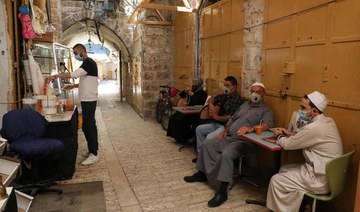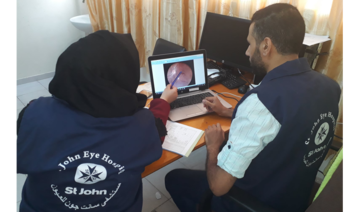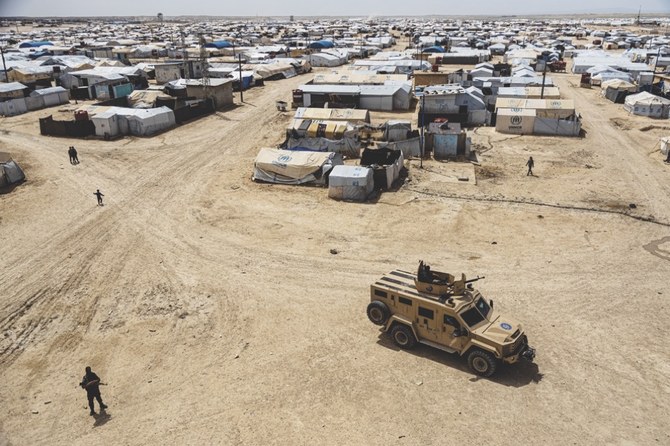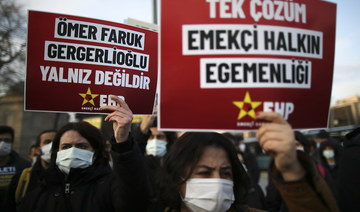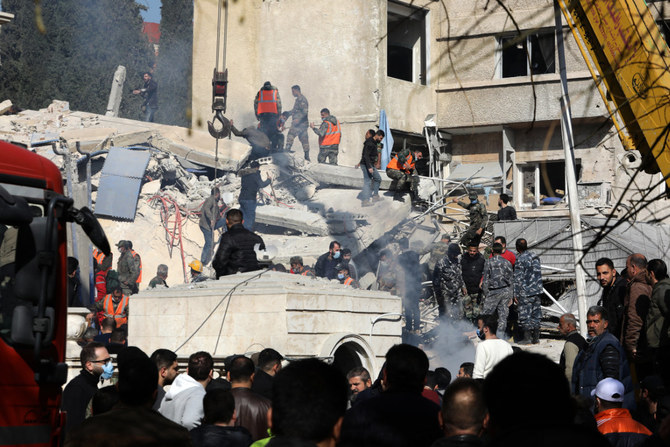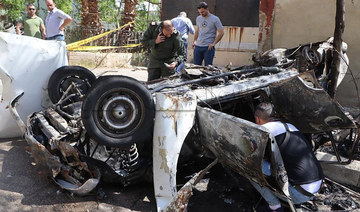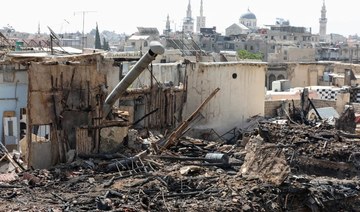GAZA CITY: On the eve of Eid Al-Adha, cash-strapped Saeed Zeitawi bemoaned that for the first time in 20 years he had not been able to buy a sacrificial animal for the Muslim festival.
The 49-year-old Palestinian, who supports a family of eight, told Arab News that this year’s Eid holiday would hardly be worth celebrating.
“There is no point in making Eid without a sacrifice. The joy of Eid this year has gone. The sacrifice is the most prominent ritual of the feast. It brings joy to the hearts of children and makes everyone happy,” he said.
Livestock markets in Palestine, where animals are sold for sacrifice, have witnessed a dramatic slump in trade due to a combination of the financial crisis being faced by the Palestinian Authority (PA), the economic fallout from the coronavirus disease (COVID-19) pandemic, and the ongoing Israeli blockade imposed on the Gaza Strip.
Livestock dealers have been offering to accept staged payments for sacrificial animals in order to encourage citizens to buy. Zeitawi, who lives in the West Bank, said he had paid via instalments last year but that this Eid he would not even be able to afford to take up that option.
As a PA employee his monthly wage had more than halved and payment dates had become irregular. “The salary we receive is barely enough to manage our basic life affairs,” he added.
Zeitawi’s situation is reflected throughout the Gaza Strip, where 2 million people live. Abed Rabbo Odwan bought a sacrificial calf last year with five friends who together purchased it through installments.
In previous years, when his finances were healthier, Odwan, 45, had bought lamb as a sacrifice but now, he said, even a shared calf was “no longer an option.”
Odwan, a school headmaster who for years has only received 40 percent of his total salary, added that he supported a family of nine, four of them studying at university, and could barely provide for their basic needs. An animal sacrifice for Eid had become a luxury he could no longer afford.
Abdel Aziz Afanah, whose family owns one of the largest livestock farms in Gaza, told Arab News that Eid seasonal business was at its “worst” in years.
“The situation has been deteriorating continuously since the imposition of the (Israeli) blockade, and the current season has worsened with the pandemic and the salary crisis. The majority of people have been affected financially,” he said.
According to official estimates, about 53 percent of the population of the Gaza Strip lives in poverty.
Issam Asida, a livestock dealer in the West Bank, said there had been a sharp dip in trade at sacrificial livestock markets this season where the supply of animals had outstripped demand.
Despite prices being the same, if not less, than last year, Asida told Arab News that his sales so far had not even reached 20 percent of 2019 levels.
Unofficial estimates indicate that Palestinians sacrifice around 100,000 sheep and calves a year.
Samir Abu Mudalleh, a professor of economics at Al-Azhar University in Gaza, said that most Palestinians were experiencing severe economic pressures, and due to wage cuts the purchasing power of workers had greatly diminished.
“The majority of economic sectors are in crisis, and if the situation continues to deteriorate, the crises may strike all aspects of life and lead to unprecedented collapses.”




